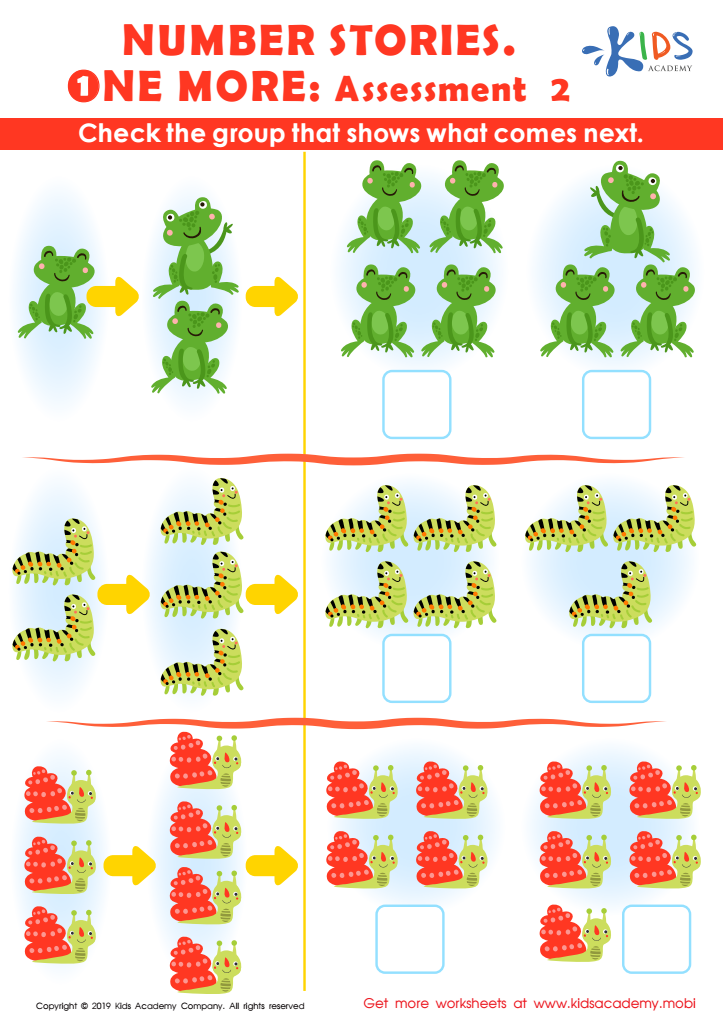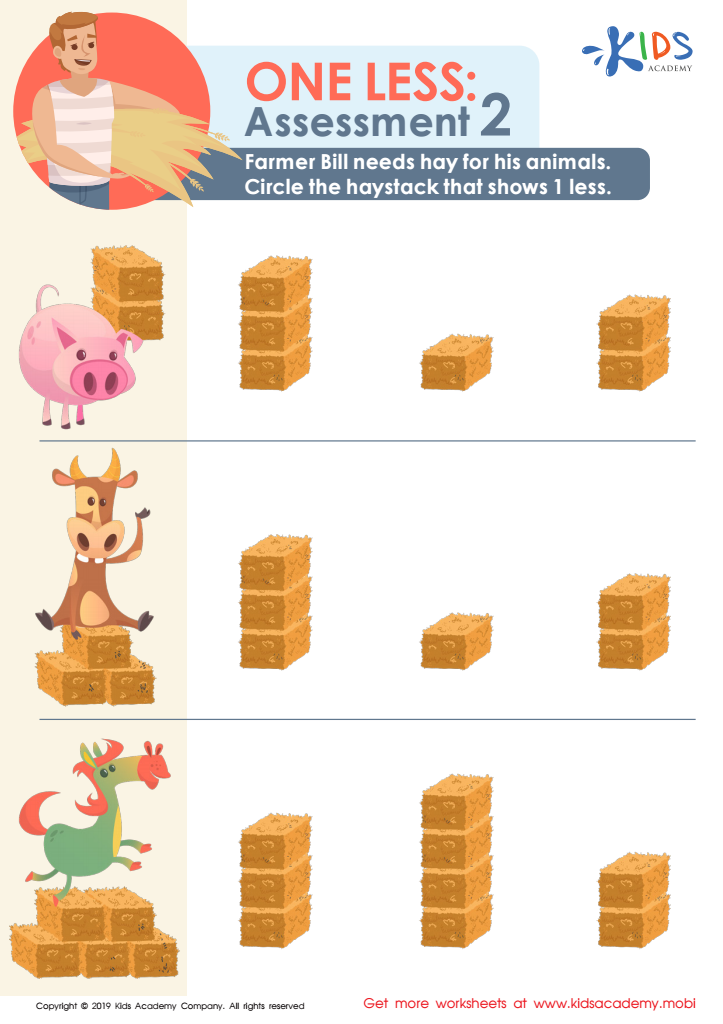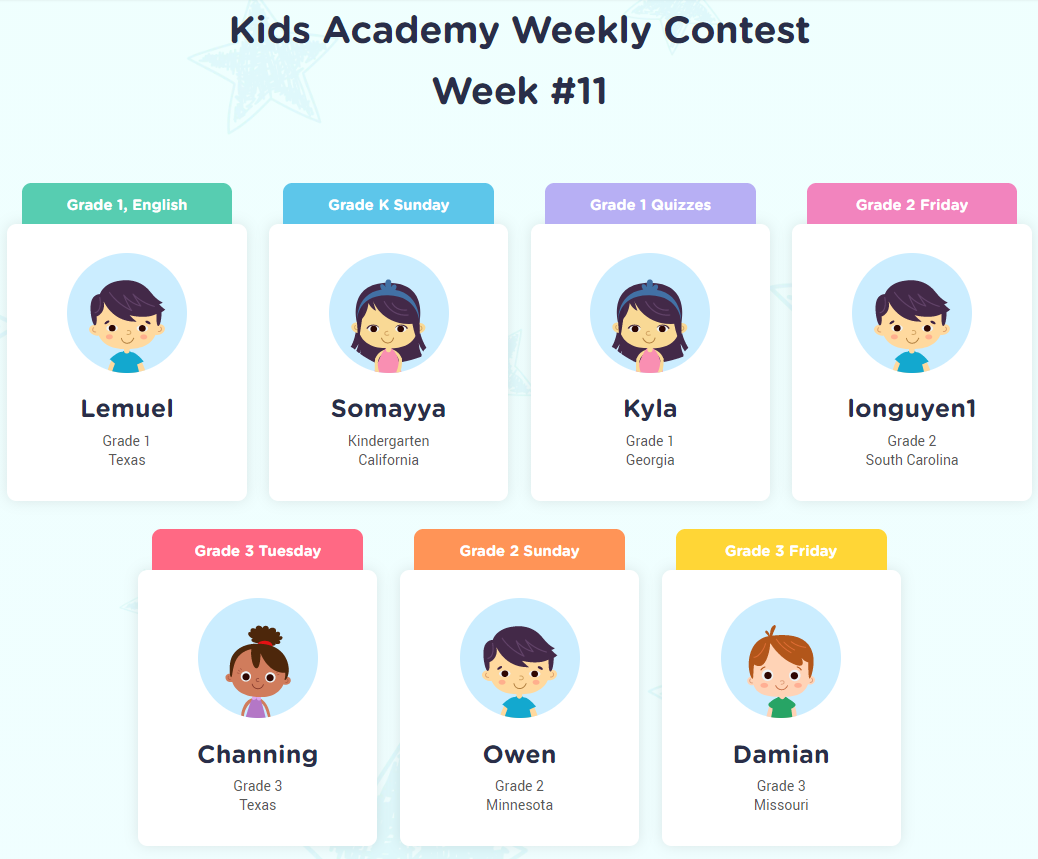Counting Worksheets Activities With Answers for Ages 3-4
2 filtered results
-
From - To


Number Stories One More – Assessment 2 Worksheet


One Less: Assessment 2 Worksheet
Counting Worksheets Activities with Answers are an essential tool in the educational journey of young learners. These activities not only serve as a foundation for mathematical skills but also foster cognitive development early on. The significance of these worksheets lies in their structured approach to teaching children the basics of numbers and counting, a skill that is fundamental in everyday life.
Firstly, Counting Worksheets Activities with Answers introduce children to the world of numbers in a structured and gradual manner. This ensures that the learning process is not overwhelming and is adjusted to the pace of each individual learner. The inclusion of answers enables immediate feedback, which is crucial for reinforcing learning and correcting mistakes on the spot.
Secondly, these activities are designed to enhance concentration and attention to detail. As children engage with these worksheets, they learn to focus on the task at hand, counting accurately and recognizing patterns. This attention to detail is a skill that transcends mathematics and is valuable in various aspects of life and learning.
Moreover, Counting Worksheets Activities with Answers are versatile tools that cater to different learning styles. Whether a child is a visual, auditory, or kinesthetic learner, these worksheets can be adapted to meet their needs, making the learning process more efficient and enjoyable. For instance, visual learners can benefit from worksheets that incorporate colorful images and graphics, while kinesthetic learners can engage with activities that involve physical counting of objects.
Furthermore, these activities lay the groundwork for more complex mathematical concepts. Understanding the basics of counting is a prerequisite for learning addition, subtraction, multiplication, and division. As such, mastering counting with the help of these worksheets sets children up for future success in mathematics.
In conclusion, Counting Worksheets Activities with Answers are a valuable educational resource. They provide a solid foundation in numbers, enhance cognitive skills, cater to various learning styles, and pave the way for more advanced mathematical learning. By incorporating these activities into the learning process, educators and parents can ensure that children develop a strong and positive relationship with mathematics from an early age.
 Assign to My Students
Assign to My Students











